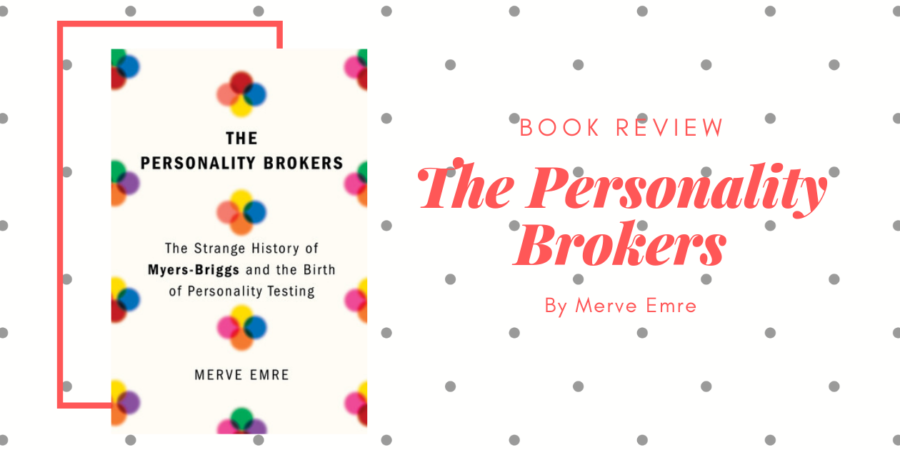Like everyone else, I’ve taken the Myers-Briggs Type Indicator a couple of times. However, I have noticed that my indicator has changed every time I take it – I’ve always thought that the results depend on my mood at the moment, but reading this has made me realise that my way of thinking is different from them. Because at the very start of the book, the author goes for an official MBTI course and is told “you have to buy into the idea that type never changes.” Oops.
That said, The Personality Brokers is not about the shortcomings of the MBTI. This is the story of the test and the mother-daughter pair who created it: Katherine Briggs and Isabel Briggs-Meyers. I’ve got to say, I did not expect the history that I read. To sum it up: Katherine and Isabel were not fulfilling their potential and they ended up using Jung to create types, each for their own purpose. Also, the test was initially called the Briggs-Meyers Type Indicator (to honour Katherine Briggs) and only got switched around because MBTI sounded better than BMTI.
To be honest, I did not expect the history behind MBTI to be so racist and sexist. I expected the unscientific stuff, but the other two, not really. I get that times were different, but they tried to use their theories of types to prove things like women were more nurturing than men and hence, women were responsible for helping nurture men to greatness. Or how Isabel interpreted “members of the dark and inferior race [as] standard symbols for the suppressed and considered-inferior parts of one’s own psyche.” That was not pleasant to read and I’m really hoping that the current incarnation of the test has removed the sexist and racist undertones.
Another part of the history of the book that caught my attention was the way personality tests intersected with changes in the workplace. The theory was that when workers found their perfect jobs (due to personality to job matching), it would “encourage him to lodge his sense of self ever deeper into his nine-to-five occupation.” It reminded me of the stuff in Overwhelmed and how work has slowly become the center of our lives. Looks like the personality tests helped with that movement by promoting the idea of the ideal job that would help fulfil worker’s lives.
The only thing I would have liked to see more of was an assessment of the test. The beginning of the book made it sound really shady, and it’s obvious that the inception of the test was not scientific, but we never get an assessment of the modern version of the MBTI or an explanation of why they’re so scientific. In fact, the book ends by talking pretty positively about the book, which came as a bit of a surprise, given its chequered past.
Overall, this was an interesting read that brings you through the lives of Isabel and Katherine Briggs and the history of the MBTI. I don’t really agree with their “type is constant” assessment so knowing the background to the test is going to help me engage with people better when they ask me why I don’t remember what my type is or why I don’t really buy into that.

This was fascinating! I’ve always loved doing tests and quizzes about my personality, but very rarely get the same result twice. I’m a pretty firm believer that people and their personalities change – I was SO extroverted in high school and craved interaction, and now I think I’m way more of an introvert. Fundamentally these sorts of things might be useful to get a general idea about who someone might be, but I’d hardly call them conclusive. People are way too complex to be put in rigid boxes!
I agree that it’s too hard to define people so simply! I used to be pretty extroverted too but now I’m not so much – then I read that extroverts get energy from being with others while introverts get energy from being alone (even if they enjoy the company of others) and I realised that I’m actually an introvert.
How interesting. I don’t know much about the history of the test, other than it is so ingrained in our society. Students took it in school (do they still?) and it comes up so often in various formats–from the serious to the funny. I hadn’t realized about the sexist and racist history of the test. It certainly colors my opinion of it–and not in a good way. I’d be curious to know if it’s been adapted over the years to make up for that too.
Of the times I’ve taken it, two of my four letters have changed off and on over the years. I figured it had more to do with the version of the test I was taking.
Thank you for sharing! I may have to check this book out.
Despite what MBTI says, I suspect that personality results change for many people. Yes, I hope the test has been revised too, especially given its global prevalence!
This was very interesting. I was asked to take this test as part of a “team-building” experience in a former job and I have to say it gave me pause. I could manipulate the results with my answers, and I felt that this test belonged firmly in the pseudoscience realm. I also wondered just who was privy to the results and how those could be used in a positive or negative way in the workplace. Tests like this are far too simplistic to account for the ever-changing people we are.
Your suspicions about the pseudoscience are probably correct, given that the history of the test is extremely unscientific. Hopefully people start relying on them less and less as time goes by!